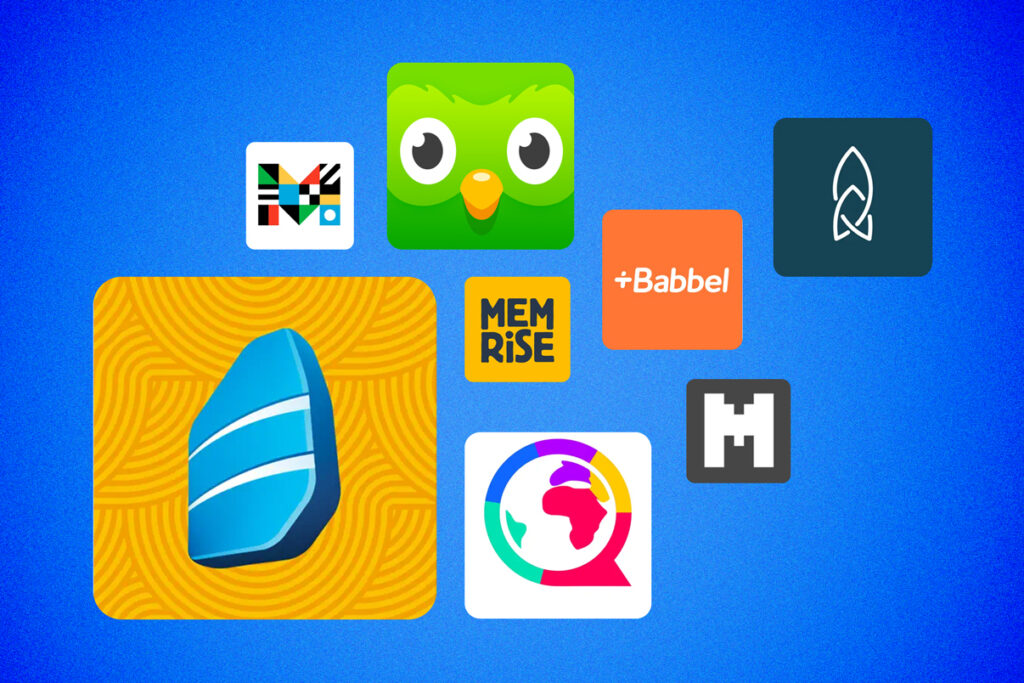
10 Rosetta Stone Alternatives with a Similar Immersive Style
When it comes to language learning, there’s no one-size-fits-all app.
And that’s why today, I’m going to help you compare Rosetta Stone with other language learning tools.
Rosetta Stone is a critically acclaimed language learning program that’s known for its emphasis on immersion and its voice recognition technology.
It’s one of the most famous language learning apps, but for language learners who want to look around and say, “What else is there?”—well, this post is for you.
I’ll show you alternatives that can, just as effectively, or maybe more effectively, teach you the language of your dreams.
Contents
- 1. Duolingo
- 2. FluentU
- 3. Rocket Languages
- 4. Babbel
- 5. Mango Languages
- 6. Memrise
- 7. Clozemaster
- 8. Busuu
- 9. Pimsleur
- 10. Lingvist
- Why Use Rosetta Stone Alternatives?
Download: This blog post is available as a convenient and portable PDF that you can take anywhere. Click here to get a copy. (Download)
1. Duolingo
Available on: Android | iOS | Web
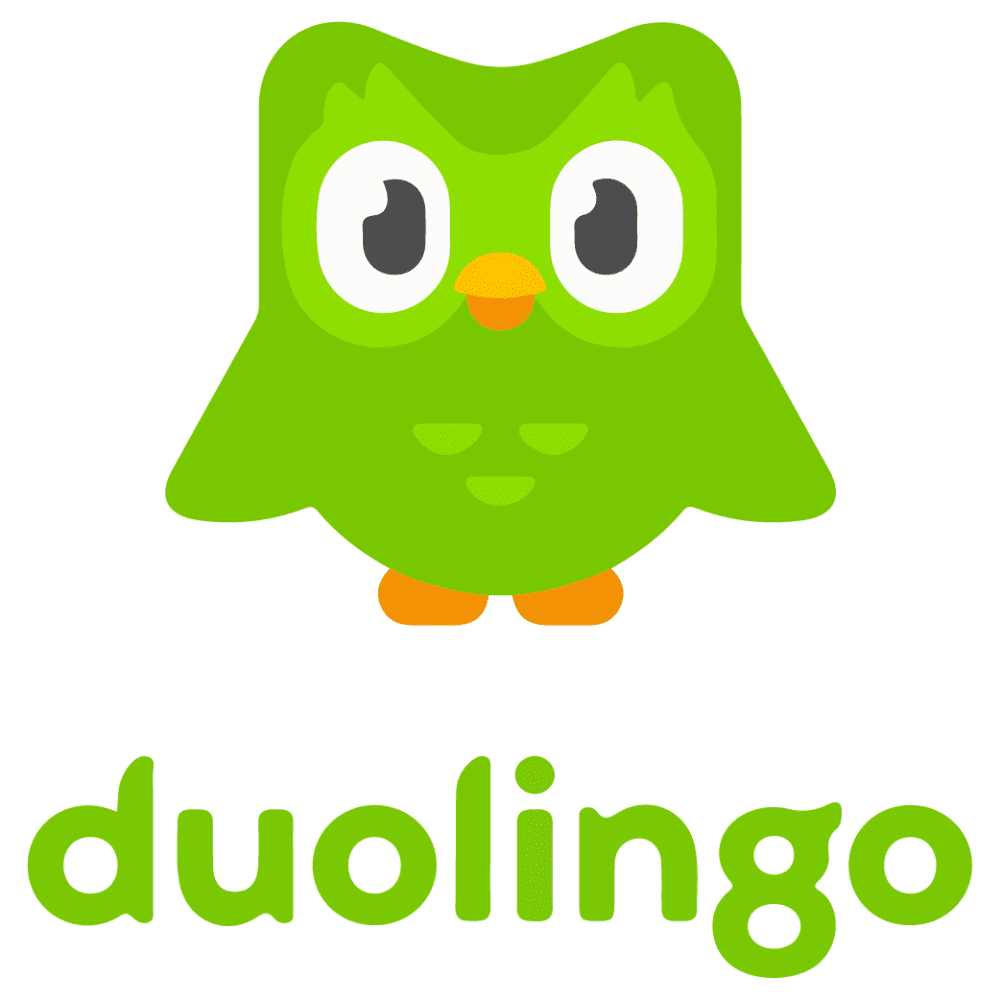
How it’s different from Rosetta Stone:
- Quick, gamified lessons
- More appropriate for beginners
- All lessons are free
With millions of users learning any of the 30+ languages supported, Duolingo is considered one of the most recognizable language learning platforms.
It seems that if you “gamify” language learning, people flock to your doors. Add the fact that Duolingo is free, and you have a pretty potent combination.
Duolingo captivates you into playing simple but effective repetitive language games. The activities include pairing words and their translations, forming a proper sentence by arranging words or even reading sentences out loud.
The biggest drawback is that it will only take you up to a certain level, but there are plenty of ways to continue learning even after.
Here’s a more detailed comparison review of Duolingo and Rosetta Stone.
2. FluentU
Available on: Android | iOS | Web
How it’s different from Rosetta Stone:
- Immersion through native video content
- Less structured
- Multimedia flashcards for regular reviews
FluentU takes videos like movie clips, music videos, inspirational talks and more and adds learner-oriented features on top of them.
Videos are equipped with subtitles that you can interact with (click on any word as the video is playing to see what it means, example sentences and more). You can also add any word to a flashcard deck for later review, building your own vocabulary list.
Each video and flashcard deck can be reviewed through SRS-based quizzes—that means that the program will introduce new vocabulary and review older vocab at intervals optimized for long-term learning.
Click here for an in-depth review of FluentU.
3. Rocket Languages
Available on: Android | iOS | Web

How it’s different from Rosetta Stone:
- Explains grammar and cultural facts directly
- Podcast-style lessons
- One-time purchase rather than subscription
If you like Rosetta Stone because of its focus on speech and pronunciation, then you’ll probably love Rocket Languages.
This program comes with podcast-type discussions where hosts talk about a certain topic (e.g., preparing for a party), all with PDF transcripts.
But the best thing is that the program keeps you talking in the target language—probably more so than Rosetta Stone. Voice recognition technology can take a listen and compare your recorded speech with the native speaker’s and give you feedback.
There’s another element the program excels at more than Rosetta Stone: incorporating cultural insights, which enhances the overall “flavor” of the course.
For more on the pros and cons of Rocket Languages vs. Rosetta Stone, click here.
4. Babbel
Available on: Android | iOS | Web
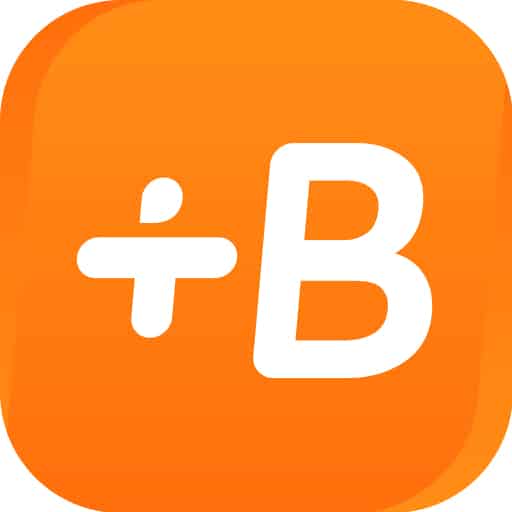
How it’s different from Rosetta Stone:
- Explicitly teaches grammar
- Option for unlimited live group classes
- One subscription per language
If want more handholding in the language before diving in head first, then Babbel might just be the thing for you.
Just like with Duolingo, you’ll be introduced basic vocabulary through test-style marathons. You’ll find yourself doing a series of tasks, like choosing the correct translation from a list of choices or typing the translation yourself. These follow a spaced repetition system that repeatedly exposes you to words you’re having difficulty with.
Unlike with Rosetta Stone, you’ll be more explicitly taught grammar points. Babbel loves to do grammar sidebars and further explain nuances in grammar. You’ll be taken behind the scenes and taught how the rules apply.
You can learn more about Babbel here.
5. Mango Languages
Available on: Android | iOS | Web
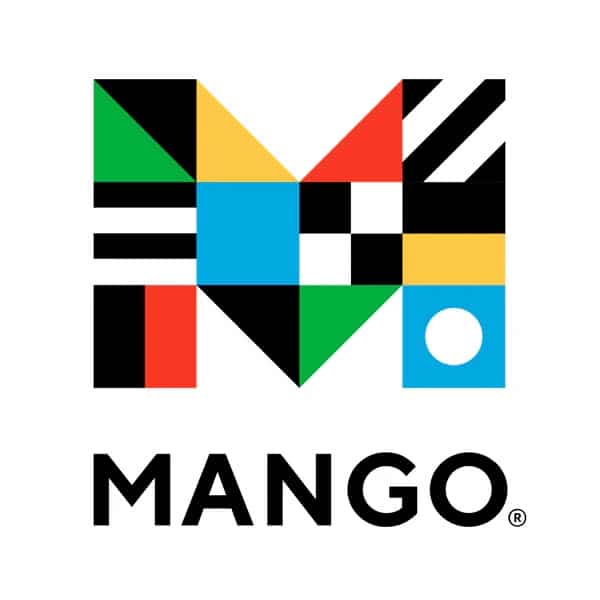
How it’s different from Rosetta Stone:
- Covers 70+ languages, including Cherokee
- Includes both literal and actual translations
- Lets you learn through foreign movies
Mango Languages lets you access lessons and exercises for over 70 languages, including hard-to-find dialects like Urdu, Tamil and Javanese.
Mango Languages even works with a great number of public libraries around the world, so you may be able to get it absolutely free.
Like Rosetta Stone, native speaker voice comparisons and pronunciation practice allow you to get the hang of your target language. You’ll be prompted to enunciate the words, phrases and sentences in the lessons.
A feature that Rosetta Stone doesn’t always have are the foreign language full-length movies that come with closed captioning. You can do a scene-by-scene study of the films.
Click here for a full review of Mango Languages.
6. Memrise
Available on: Android | iOS | Web
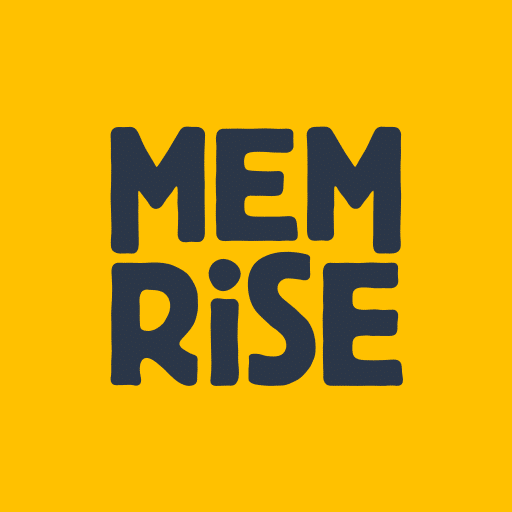
How it’s different from Rosetta Stone:
- Has user-generated lessons
- Teaching style based on flashcards and mnemonics
- Features video clips of native speakers talking
Memrise is an awesome tool for learning vocabulary and phrases with over 200 language courses on offer.
Memrise’s greatest strength is that it taps into the wisdom of crowds. Aside from an in-house team of researchers, users can actually create lessons and share them with everybody.
Another way users are contributing to the whole here is through “mems,” or mnemonic devices that can help a word stick. For vocabulary flashcards, you can add texts and pictures to the lessons to help make a word memorable. Of course, you can choose which of the user-generated “mems” you wish to highlight.
Get a detailed take on Memrise’s pros and cons here.
7. Clozemaster
Available on: Android | iOS | Web
How it’s different from Rosetta Stone:
- Teaches you a language through sentence mining
- Focus on reading rather than speaking
- More suited for intermediate learners and above
Clozemaster is perfect for intermediate and advanced language learners of over 50 languages who want to learn both grammar and vocabulary.
The program is “sentence mining” in its simplest form. You’ll be exposed to hundreds of thousands of sentences with crucial words blanked. You can select whether you want a multiple choice or fill-in-the-blanks test type.
If Rosetta Stone immerses your ears through the use of spoken language, you’ll have similar immersion in written form with Clozemaster.
Because the words come in a specific context, you’ll be able to suss out the grammar rules, or the meaning of words after a number of repetitions.
8. Busuu
Available on: Android | iOS | Web

How it’s different from Rosetta Stone:
- More community interaction
- Gives cultural explanations
- Lessons include native-speaker videos
Busuu is another major name in the world of language learning platforms, but its approach is quite different from Rosetta Stone’s.
While Rosetta Stone focuses on immersion, Busuu takes you through short, practical lessons on different themes like sports and travel. Grammar explanations are included, and you’ll get useful cultural tidbits so you’ll know how to use phrases in context.
Busuu has a strong community feature—the app prompts you with images or videos that you can describe, then native speakers will give you corrections. You might also see videos of native speakers saying vocabulary out loud throughout the lessons, although this is only available in some languages.
If your goal is to pick up conversational phrases fast, Busuu might be the app for you. Find out more about Busuu here.
9. Pimsleur
Available on: Android | iOS | Web
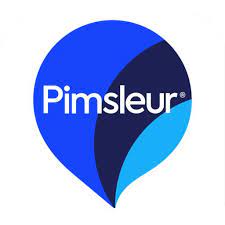
How it’s different from Rosetta Stone:
- Based on audio lessons
- Follows a daily curriculum
- Mostly teaches listening and speaking
Rosetta Stone relies heavily on visual learning, so for auditory learners, there’s a program that might be more fitting: Pimsleur. It consists of 30-minute audio lessons that run from beginner to intermediate. You can get through the program without even typing—it’s very much hands-free!
The structure is a bit stricter, though. You have to listen to a specific audio lesson every day. The lessons occasionally use repetition to make new phrases stick in your memory, and you’ll often be prompted to answer questions or say phrases out loud.
Audio lessons form the core of the program, but you can also get extra exercises on the mobile app, like flashcard reviews and matching-type quizzes.
Click here for a thorough review of Pimsleur.
10. Lingvist
Available on: Android | iOS | Web
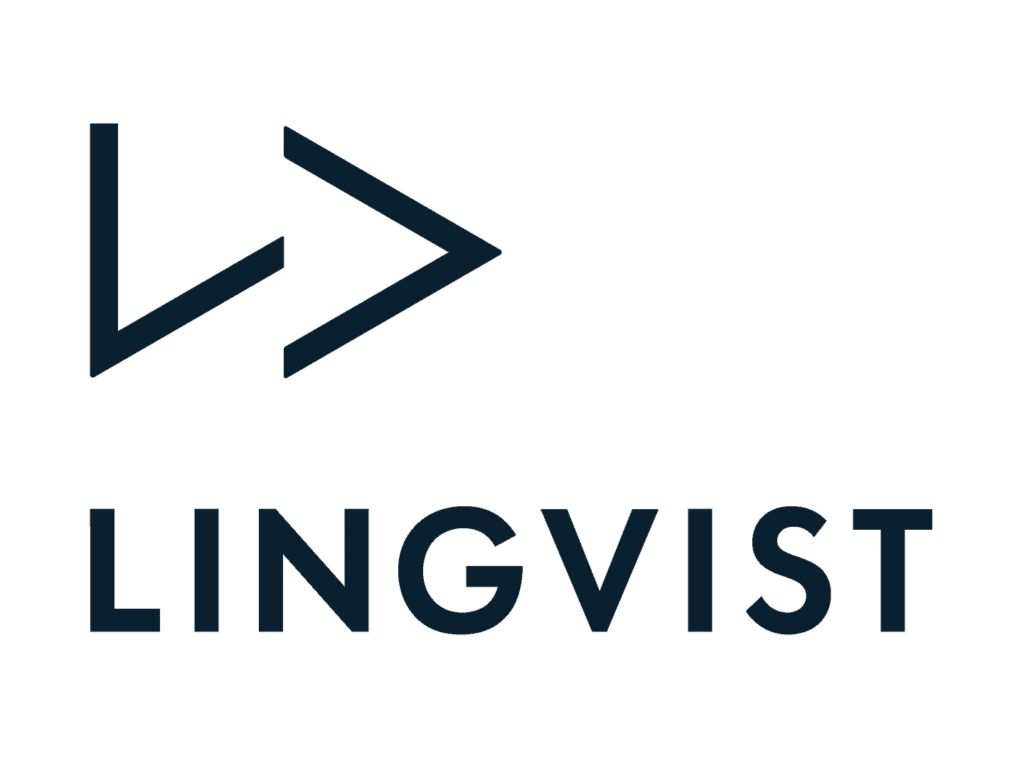
How it’s different from Rosetta Stone:
- Heavy focus on vocabulary building
- Uses flashcards with spaced repetition
- Exercises are mostly fill-in-the-blanks
Rosetta Stone has a well-rounded program that focuses on different language skills, but sometimes you want to hone in on one. Fast vocabulary acquisition is Lingvist’s specialty.
It’s based on flashcards that use spaced repetition—a classic in language learning—but they’re supercharged. The flashcards have a fill-in-the-blanks format, there are predesigned decks meant to take you up to a B2-level vocabulary and sentences are curated to be realistic.
According to the stats, just by studying 20 minutes on Lingvist in a day, you can learn 30 new words. Of course, the catch is it’s a vocabulary app. While it does have supplementary grammar sections and quizzes, you’d need to take on other study materials to improve other language skills.
To learn more about Lingvist, check out this comprehensive review
Why Use Rosetta Stone Alternatives?
Rosetta Stone is a well-established player in the world of language learning apps and programs, and it even won awards like the “Best Language-learning Software” from PC Magazine, six years in a row. Serious language learners have likely heard of it—so why bother looking for alternatives?
Let’s look at Rosetta Stone’s approach:
- No translations. If you’re trying to learn German, chances are, you’ll be getting the lessons in German. In the beginning of the course, you’ll feel like so much is going over your head, but the more you get into it, the more things start clicking—things slowly begin to make sense, and the dots get connected.
- Spoken language is key. Rosetta Stone focuses on pronunciation and actual spoken use of the language. Its propriety technology, TruAccent, is a speech engine that’s able to “listen” and help you fine-tune pronunciation so that you slowly begin to sound like a native.
- It’ll cost you a bit. Rosetta Stone is available as an online subscription, an instant download or a CD. However, its subscription fees can be steep compared to other apps—for example, a 3-month access is at least $79.
While Rosetta Stone is one of the most tried-and-tested language learning apps, it won’t fit every learning style. For example, you might want more direct grammar explanations because you want to master grammar faster. Or you might want a more “game-fied” approach, or a closer sense of community while studying the language.
The programs above may help you, personally, learn better than Rosetta Stone can. Others you may simply find more fun. And still others… well, let’s just say there are definitely cheaper and more price-flexible options out there.
So what are you waiting for? Get to work!
With the ten alternatives we’ve given in this post, you’re now in a very good position to conquer your target language. There’s a world out there beyond Rosetta Stone.
In fact, don’t feel you need to limit yourself to any one language program. If you can, get a combo that works for you.
Whether it’s Spanish, German, Italian or another language, you have access to affordable and effective learning tools.
Good luck!
Download: This blog post is available as a convenient and portable PDF that you can take anywhere. Click here to get a copy. (Download)




